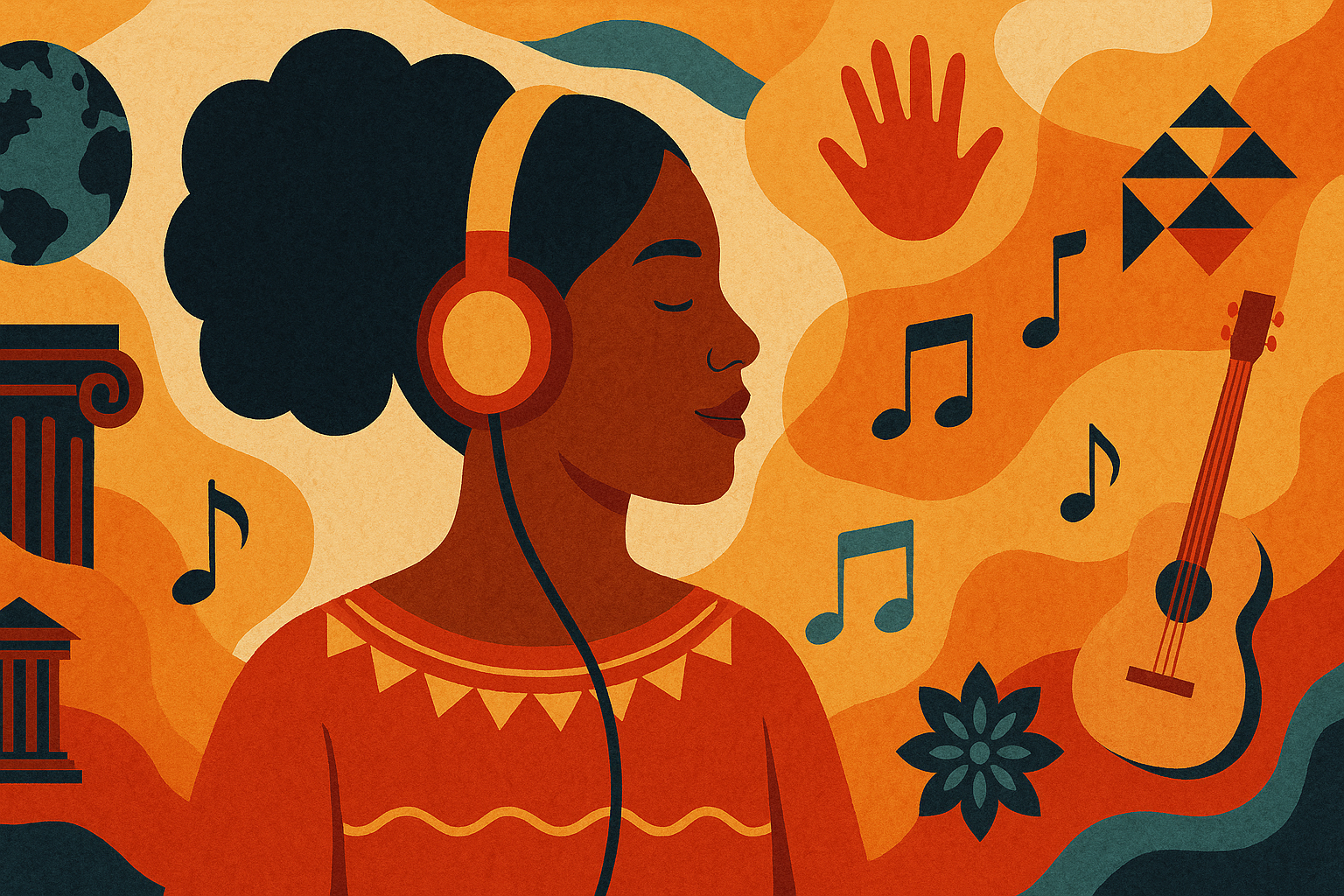Music reflects cultural identity by acting as a sonic expression of a people’s history, values, struggles, and collective memory. In the context of the African diaspora, shaped by the transatlantic slave trade, music becomes not just entertainment, but a living archive of cultural survival, adaptation, and pride. Here’s how music reflects cultural identity, especially in relation to your questions on jazz, hip hop, and the legacy of slavery:
Preserving Ancestral Memory
- Music carries oral histories — stories, proverbs, and values — especially in cultures where written records were suppressed or denied.
- Enslaved Africans used music to preserve spiritual beliefs, languages, and traditions, embedding them in work songs, spirituals, and later genres like blues and jazz.
- In hip hop, artists often reference heritage, family, and African roots, using rhythm and rhyme to connect with a long cultural lineage.
Expressing Collective Experience
- Music reflects the lived experiences of a community — joy, pain, resistance, resilience.
- Jazz expressed the complexities of Black life in Jim Crow America through improvisation and innovation.
- Hip hop voices the realities of urban life, racism, policing, poverty, and pride, often becoming a mirror for marginalized communities.
Maintaining and Evolving Identity
- Through music, communities adapt and reshape their identity while retaining a connection to the past.
- African rhythms fused with European instruments gave rise to jazz; breakbeats and sampling old soul records helped create hip hop — both are examples of cultural hybridity.
- These genres evolve, but remain distinctively tied to Black identity, especially in how they are performed, shared, and taught.
Claiming Space and Power
- In societies where Black voices were historically silenced, music became a tool of empowerment and self-definition.
- From spirituals sung in cotton fields to rap verses that confront police brutality, music allows people to assert dignity, challenge injustice, and tell their own stories.
Symbols, Language, and Style
- Music includes language, slang, symbolism, fashion, and dance — all of which encode cultural identity.
- Think of jazz’s cool aesthetic or hip hop’s streetwear and graffiti — these are visual and linguistic extensions of musical culture.
- Think of jazz’s cool aesthetic or hip hop’s streetwear and graffiti — these are visual and linguistic extensions of musical culture.
- Lyrics often affirm identity (“Say it loud, I’m Black and I’m proud”) or reclaim it (“To be young, gifted, and Black”).
In Summary:
Music reflects cultural identity by:
- Preserving traditions in the face of oppression
- Expressing collective experience and resistance
- Adapting and evolving with communities
- Claiming power and voice
- Embedding cultural symbols and language
In diasporic Black music — from jazz to hip hop — this reflection is not only cultural but also political and historical, shaped by the enduring impact of the transatlantic slave trade.
